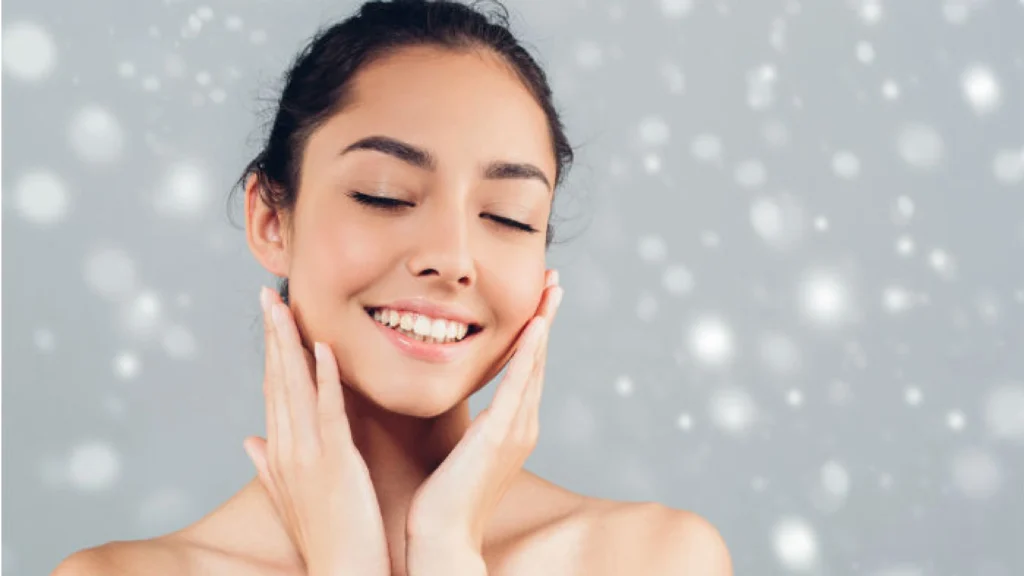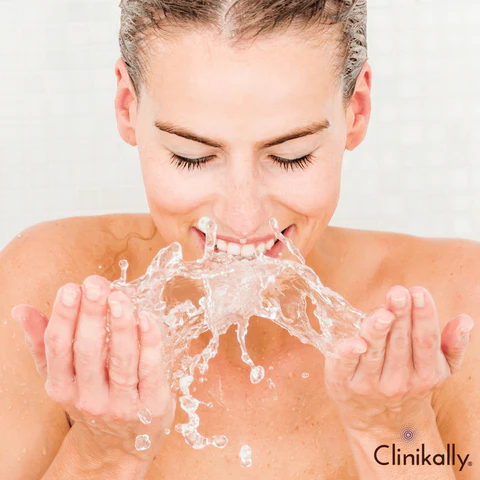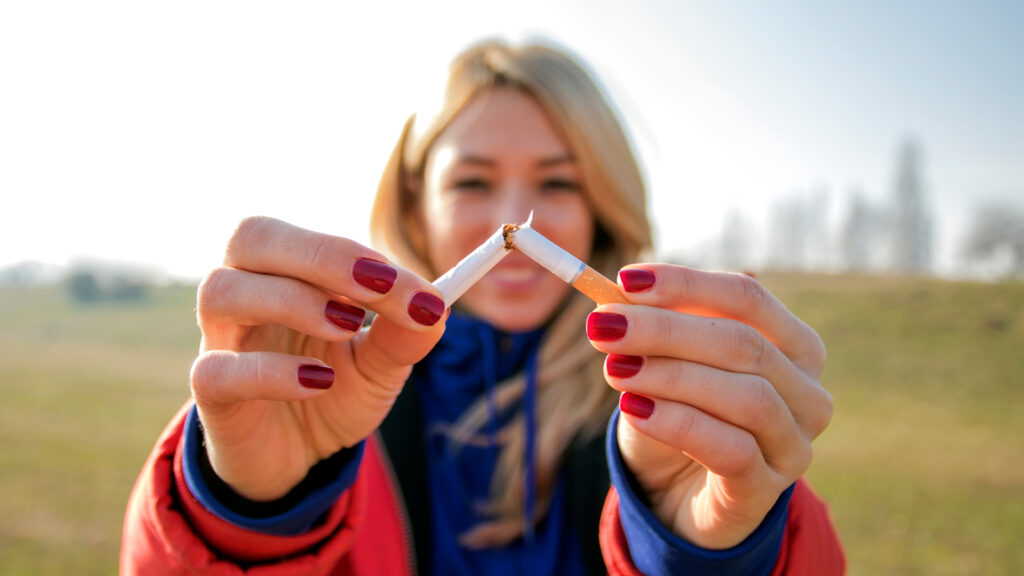
While everyone dreams of having healthy and vibrant skin, it may seem like a faraway dream to many. Hectic lifestyles, sleep deprivation, environmental pollutants, and changing seasons wreak havoc on our skin, making it dull, lifeless, and prone to damage. But fret not, as we have shared some easy and effective home remedies for beautiful skin and some healthy skin tips that aim to heal, repair, and rejuvenate your face. Let’s get you supple, smooth, and flawless skin that defies aging – skin that is soft, bouncy, and hydrated throughout the year. If getting great-looking skin is on top of your list of beauty concerns, scroll down to keep reading!
In This Article
1. 25 Effective Ways To Get Naturally Flawless Skin
2. Infographic: 7 Easy Tips For Healthy And Radiant Skin
3. Frequently Asked Questions
4. Key Takeaways
5. Illustration: Easy And Effective Ways To Get Beautiful Skin
25 Effective Ways To Get Naturally Flawless Skin
Achieving naturally flawless skin takes time, consistency, and proper care. Here are 25 effective ways to improve and maintain your skin’s health and appearance naturally:
- Stay Hydrated

Yes, staying hydrated is essential for overall health and well-being! It helps maintain skin elasticity, promotes proper digestion, boosts energy, and supports cognitive function. Here are a few tips to stay hydrated:
- Drink Water Regularly: Aim for at least 8 glasses of water a day. Carry a reusable water bottle to make it easier to drink throughout the day.
- Eat Water-Rich Foods: Incorporate fruits and vegetables like watermelon, cucumber, oranges, and strawberries, which are high in water content.
- Limit Dehydrating Drinks: Reduce caffeine and alcohol, as they can contribute to dehydration.
- Hydrate Before, During, and After Exercise: Drink extra water around workouts to replenish lost fluids.
- Add Flavor to Your Water: If plain water feels boring, add slices of lemon, mint, or berries to enhance the taste.
How do you stay hydrated? Any specific routines or challenges?
2. Show Some Love To Your Gut
True beauty is never skin-deep. For radiant and beautiful skin, you should be healthy from within. Studies have suggested that increased microbial diversity in the gut can lead to better skin health. And, an unhealthy gut can manifest in the form of acne and eczemai (2).
For better skin, it is recommended that you also focus on improving your gut health. Avoid processed foods, white sugar, and excessive alcohol, and eat more fresh fruits and vegetables to boost both your gut health and skin.
3. Don’t Forget Sunscreen!
Protecting your skin from the harmful effects of exposure to the sun’s harsh rays goes a long way in keeping it soft and healthy. Beauty bloggers across the globe swear by the efficacy of a good sunscreen in helping you maintain a youthful glow.
However, do remember that not all sunscreens provide the same benefits. It is recommended that you use mineral-based sunscreen daily to truly protect your skin from the harmful effects of ultraviolet radiation. There are only two active ingredients in mineral sunscreen: zinc oxide and titanium dioxide. Zinc oxide is the only active ingredient in sunscreen that offers broad-spectrum protectioni . So, when you are buying mineral sunscreen, be sure to buy one that contains only zinc oxide or titanium dioxide plus zinc oxide for broad-spectrum coverage.
4. Add Collagen To Your Diet
Collagen is the most abundant protein in the human body and is a major building block of muscles, bone, skin, and ligaments. Our body’s natural reserves of collagen deplete as we age.
However, the good news is that age-related depletion of collagen can be reversed by the oral administration of certain collagen peptides. Adding collagen supplements to your diet has been shown to promote healthy skin, hair, and nails.
Studies have proven that taking collagen supplements regularly improves your skin hydration and elasticity (3). Most supplements that are available are easily ingested and absorbed by the body.
In a review involving 805 patients across 11 studies, collagen supplements were used to treat conditions such as pressure ulcers, xerosis, skin aging, and cellulite. Collagen hydrolysate at doses of 2.5g/d to 10g/d for 8 to 24 weeks showed positive effects, while collagen tripeptide at 3g/d for 4 to 12 weeks improved skin elasticity and hydration. Overall, oral collagen supplementation appears promising for wound healing, skin aging, increasing elasticity, hydration, and dermal collagen density, and it is generally safe with no reported adverse events.
5. Exfoliate To Eliminate Dead Skin Cells

Exfoliation is a key step in any skincare routine to eliminate dead skin cells and promote a radiant, smooth complexion. Here’s why exfoliation is important and how to do it effectively:
Why Exfoliate?
- Removes Dead Skin Cells: Exfoliation helps slough off the top layer of dead skin cells that can build up over time, leading to a dull and rough appearance.
- Unclogs Pores: It helps prevent clogged pores by removing debris and excess oils, reducing the chances of breakouts.
- Promotes Skin Renewal: Regular exfoliation promotes faster skin cell turnover, leading to fresher, healthier skin.
- Improves Product Absorption: When dead cells are removed, your skincare products like moisturizers, serums, and toners can penetrate deeper and work more effectively.
- Evens Skin Tone: Exfoliation can help fade dark spots, scars, and other imperfections over time, leaving your skin looking more even and bright.
Types of Exfoliation
1. Physical Exfoliation
- Involves using a scrub or tool to manually remove dead skin.
- Examples: Scrubs with sugar, salt, or microbeads, exfoliating gloves, or brushes.
- Tip: Be gentle! Over-scrubbing can cause irritation, especially if you have sensitive skin. Opt for fine-grain scrubs rather than harsh ones.
2. Chemical Exfoliation
- Uses acids or enzymes to dissolve dead skin cells.
- Examples: Alpha-hydroxy acids (AHAs) like glycolic acid and lactic acid, beta-hydroxy acids (BHAs) like salicylic acid, and enzymes from papaya or pineapple.
- Tip: Start with a lower concentration, especially if you’re new to chemical exfoliants, and avoid using too frequently to prevent irritation.
How to Exfoliate Properly
- Choose the Right Exfoliant for Your Skin Type:
- Dry or Sensitive Skin: Opt for gentle chemical exfoliants like lactic acid or enzyme-based exfoliants.
- Oily or Acne-Prone Skin: BHAs like salicylic acid are great for unclogging pores and reducing excess oil.
- Combination or Normal Skin: You can use a mix of physical and chemical exfoliants, but be cautious not to overdo it.
- Exfoliate 1-2 Times a Week:
- Over-exfoliating can strip the skin of its natural oils, leading to irritation, dryness, and even more breakouts. Stick to 1-2 times a week depending on your skin type.
- Apply Gently:
- If you’re using a physical scrub, apply with light circular motions and avoid scrubbing too hard. Chemical exfoliants should be applied evenly and left on the skin as per product instructions.
- Follow Up with Moisturizer:
- After exfoliation, apply a hydrating moisturizer to restore moisture and soothe the skin.
- Sun Protection is Key:
- Exfoliating can make your skin more sensitive to the sun, so always follow up with sunscreen during the day.
By incorporating regular, gentle exfoliation into your skincare routine, you can reveal a smoother, brighter, and healthier complexion!
6. Maintain Your Skin Microbiome Balance
Just like a balanced gut microbiome, it is important to maintain a healthy skin microbiome as well (2). Our skin is home to a variety of microorganisms, many of which help keep it hydrated and supple by fighting off free radicals.
Avoid using harsh soaps or face washes that can kill these friendly bacteria by stripping your skin of the layers of natural oil in which the microbiome thrives. You can also boost your skin microbiome by using products that contain prebioticsi and probioticsi .
7. Eat Healthy, Skin-Friendly Fats
There is a correlation between the quality of your diet and the condition of your skin. Make sure you are eating nutrient-rich foods that are high in good fats that boost skin health (4). Not eating enough healthy fats can make your skin feel and look dry.
Foods like nuts, flaxseeds, coconut, chia seeds, olives, and avocados are rich in healthy fats that can boost your body’s ability to build strong cell membranes that are essential for protecting your skin against environmental damage.
8. Include Facial Massage In Your Skin Care Routine
Giving yourself a facial massage after a hectic day not only helps you reconnect with yourself and unwind but also gives you clear and beautiful skin. A gentle facial massage can boost circulation and reduce puffiness and tension.
Use oils that suit your skin type for your DIY beauty treatments. Skincare experts suggest using olive oil, avocado oil, jojoba oil, coconut oil, or almond oil for facial massage.
You may even add a few drops of your favorite essential oil to your massage oil for a spa-like treatment. Gently warm up a tablespoon of the oil of your choice, take a few drops on your fingertips, and massage it into your face in circular motions. You may also use a jade roller if desired.
9. Remember To Moisturize
Moisturizing is probably the most important step in your skin care routine. Keeping your skin hydrated prevents the skin’s protective barrier from becoming weak and damaged, leading to dehydration. By moisturizing your skin regularly with a suitable product, you can even delay the appearance of wrinkles.
Make sure you choose a product that suits your skin type. Don’t skimp on the moisturizer, even if you have oily skin – just go for a light water-based gel or lotion instead of a cream.
10. Always Use Cold Water On Your Face

Using cold water on your face has several benefits that can enhance your skincare routine. While it may not be ideal for every skin type or situation, it’s a helpful technique for refreshing and soothing your skin.
Benefits of Using Cold Water on Your Face
- Reduces Puffiness
- Cold water can constrict blood vessels, helping to reduce puffiness, especially around the eyes. It’s great for those mornings when your skin looks swollen or tired.
- Soothes Inflammation
- If you have irritated or inflamed skin (from conditions like acne, sunburn, or after exfoliation), cold water can help soothe the area and calm redness.
- Tightens Pores
- Cold water helps tighten your pores, making them appear smaller and reducing the chance of debris getting trapped inside. This can help keep your skin clearer and minimize breakouts.
- Improves Circulation
- Splashing cold water on your face increases blood flow to the surface of the skin, giving you a natural, healthy glow.
- Prevents Excess Oil Production
- Hot water can strip the skin of its natural oils, causing your skin to overcompensate by producing more oil. Cold water, on the other hand, cleanses without triggering oil overproduction.
- Helps Set Makeup
- Rinsing your face with cold water before applying makeup can tighten the skin and minimize pores, creating a smoother canvas for foundation and other products.
- Refreshes the Skin
- Cold water can be instantly refreshing, especially in the morning, helping to wake up both your skin and senses.
When to Use Cold Water
- In the Morning: Splashing cold water on your face after cleansing in the morning can reduce puffiness and invigorate your skin, making you feel more awake.
- After Exercise: It’s a great way to cool down and calm your skin after sweating during a workout.
- After Sun Exposure: Cold water helps cool your skin and reduce inflammation after being in the sun for too long.
- After Shaving: Cold water can reduce post-shaving irritation and razor bumps by calming the skin.
When to Avoid Cold Water
- Very Dry or Sensitive Skin: If you have extremely dry or sensitive skin, cold water may be too harsh and could exacerbate irritation. In this case, lukewarm water is a better option.
- In Cold Weather: During winter months, using very cold water can dry out your skin further, so lukewarm water might be more suitable.
How to Use Cold Water on Your Face
- Cleansing: After washing your face with a gentle cleanser, finish with a splash of cold water to close your pores and seal in the benefits.
- Ice Water Splash: For an extra refreshing boost, fill a bowl with cold water and ice cubes, and dunk your face for a few seconds. This can be especially effective to reduce puffiness.
- Cold Compress: You can also apply a cold, damp washcloth to your face to soothe inflammation or redness.
While cold water can’t replace the essential steps of cleansing, moisturizing, and protecting your skin, it’s a great natural way to enhance your skincare routine!
11. Avoid Binging On Junk Food
Like we already discussed, your nutrition and skin health are intricately related. Consuming excessive carbs in the forms of sugar, white bread, and processed foods can lead to the breakdown of collagen in your skin. Overindulgence in oily and spicy food may even lead to acne breakouts.
For beautiful skin, it is important to not only use products that suit your skin type but also to give your body proper nourishment through food. While eating a slice or two of your favorite pizza is fine on occasion, don’t make it a regular habit.
12. Include More Antioxidant-Rich Foods
Now that you know that what you eat has a big impact on your skin health, make sure to only eat foods that are rich in nutrients. Antioxidants are naturally occurring micronutrients like vitamins A, C, and E, manganese, copper, selenium, and zinc.
Plant-based foods like fruits and vegetables are the richest sources of antioxidants that repair skin cells. Eat many brightly colored varieties like broccoli, red cabbage, carrot, spinach, mango, papaya, kiwi, strawberry, and orange regularly to give your skin a natural vitamin boost from within.
13. Take A Multivitamin Supplement
While nothing can replace getting proper nutrition from a balanced meal with adequate servings of fruits and vegetables, adding a multivitamin supplement to boos the nutritional value of your diet is a good idea.
Vitamins A, B-complex, C, D, and E are essential for good skin health (4). It is always recommended that you consult your doctor before taking any supplements.
14. Quit Smoking

We already know that smoking is detrimental to many aspects of our health and can lead to multiple diseases and disorders. But, are you aware that smoking can also lead to dull, lifeless skin and premature aging?
Studies have proven that tobacco smoke can impair collagen production and accelerate the process of skin aging. It leads to the build-up of harmful free radicals and even increases the chances of skin cancer (6). If you have a smoking habit, consider quitting if you want beautiful, radiant skin.
15. Avoid Picking At Your Skin
Skin-picking is a common habit that is detrimental to your skin health. Constantly picking, pulling, or tearing at the face, especially injuries, scabs, pimples, or itchy areas, can worsen the problem or lead to infections and scars.
If you are unable to stop picking at your skin, you may have a condition called Skin Picking Disorder (SPD), one of a group of disorders related to obsessive-compulsive disorder (OCD). Do not worry if you think you have SPD – it is a common disorder that you can manage with medication and therapy
16. Move Your Body
Regular physical exercise can help you with healthy aging and play a role in reducing age-dependent muscle loss. Not only is engaging in moderate physical exercise great for your overall health, but it can also lead to glowing skin.
By improving blood circulation in the body, exercise can help deliver vital nutrients that promote collagen production (7). Increased blood flow during a workout can even give you a post-workout glow that can last for several hours after your exercise routine. Sweating during exercising can help clear out your pores as well.
Exercise, and weight training in particular, plays a key role in the lymphatic drainagei system – the body’s waste disposal unit. It runs alongside the blood circulatory system, but unlike blood circulation, it does not use the heart to pump the lymph fluid through the body. Instead, it has to rely on movement and the contraction of muscles. Therefore, keeping your body moving and lifting weight helps to eliminate toxins from the body, leading to glowing skin.
17. Add Nicotinamide Riboside To Your Skin Care Routine
Nicotinamide riboside (NR) is a molecule proven to repair and restore cellular health in humans. In your bodies, NR levels decline with age, leading to signs of skin aging. Topical application of NR improves the skin texture and repairs fine lines and wrinkles.
It can also potentially help against acne and other issues owing to its antioxidant properties (9). You can take an oral NR supplement or use face creams and serums enriched with it.
18. Clean Your Makeup Tools Regularly
Yes, this sounds like a no-brainer, but it is good to remind ourselves of the basics occasionally. If you love to wear makeup daily, clean your makeup containers, brushes, pouches, tools, and sponges regularly to get rid of dirt, dead skin cells, oil, and grime.
The accumulation of debris in your makeup kit can lead to a proliferation of bacteria that may harm your skin, leading to breakouts. Clean your makeup kit at least twice a month.
19. Manage Your Stress Levels
Research has linked psychological stress to the onset or worsening of several skin issues. As the largest organ of the body, the skin is immediately affected by psychological stress resulting from mental, physical, or emotional pressure (10).
Efficient stress management is necessary for your overall well-being and good skin health. You can practice relaxation techniques like mindfulness, yoga, meditation, deep breathing, and progressive muscle relaxation to calm your mind. These techniques will give you sustained results only with consistent practice.
20. Remove Your Makeup Before Sleeping
One of the most common skin care tips every beauty blogger offers is removing your makeup before sleeping. The skin renews itself when you sleep, and not removing the makeup can hinder the process of rejuvenation.
Since most makeup products are made up of oily substances, they can clog your pores and lead to acne breakouts if left on overnight.
You can wash your face with a mild face wash and water or use makeup remover wipes to wipe off the makeup before you sleep. Remember to moisturize afterward.
21. Get Your Beauty Sleep

Getting enough sleep daily can work wonders for your skin, and sleep deprivation can do the exact opposite. Chronic poor sleep quality can lead to increased signs of skin aging and lower your satisfaction with your overall appearance. Even one night of poor sleep can lead to dark circles under your eyes and dull facial skin.
Good sleepers not only have better skin quality, but they are also more likely to be satisfied with their physical appearance (11). Try to get an average of 7-9 hours of sleep every night for healthy, beautiful skin. Follow a nighttime ritual to prepare yourself for bed to ensure undisturbed, peaceful sleep.
22. Use Fruit-Based Face Masks
Make fruit-based face masks an integral part of your regular self-care routine. Anecdotal evidence suggests that homemade face masks with natural ingredients like banana, papaya, watermelon, and avocado are great for cleansing your skin from deep within without stripping away its natural oils.
Fruits are full of antioxidants and vitamins that are excellent for naturally boosting your skin health (4). Unlike commercial masks, fruit face masks are gentle, toxin-free, and hydrating.
Plus, they are so easy to make! Simply mash a few pieces of ripe, pulpy fruit and apply them to your face. Wash it off with cool water after 10-15 minutes. Consider adding a few drops of coconut milk to make your fruit mask more moisturizing.
23. Try Facial Exercises
While scientific evidence to date is insufficient to support the claim that facial exercises help tone your skin, many popular beauty YouTubers believe that it is great for delaying the appearance of fine lines and wrinkles.
Since countless fitness celebrities and bloggers also endorse this trend, we encourage you to try out facial workouts for yourself. Combined with a healthy diet, an effective skincare routine, and regular physical exercise, facial exercises may help keep your skin young and firm for a long time.
24. Choose The Right Products For Your Skin Type
Choosing the right skincare products for your skin type is essential for maintaining a healthy and balanced complexion. Here’s a guide to help you pick the best products based on your skin type:
1. Oily Skin
Oily skin is characterized by an overproduction of sebum, leading to shine, enlarged pores, and a tendency for breakouts.
What to Look for:
- Oil-Free, Non-Comedogenic Products: These won’t clog your pores.
- Salicylic Acid or Benzoyl Peroxide: Helps control oil production and reduce acne.
- Gel-Based Moisturizers: Hydrate without adding extra oil.
- Mattifying Products: Control shine and reduce the appearance of oily skin.
- Clay Masks: Help absorb excess oil and keep pores clear.
Recommended Products:
- Cleanser: Gel or foaming cleansers with salicylic acid.
- Toner: Alcohol-free toners with witch hazel or niacinamide.
- Moisturizer: Lightweight, oil-free gels or lotions.
- Exfoliant: Chemical exfoliants like salicylic acid or glycolic acid.
- Sunscreen: Oil-free, mattifying formulas with at least SPF 30.
2. Dry Skin
Dry skin often feels tight, flaky, or rough, and lacks moisture. It’s more prone to irritation, redness, and fine lines.
What to Look for:
- Cream-Based Moisturizers: Rich in ingredients like ceramides, hyaluronic acid, or glycerin to lock in moisture.
- Hydrating Cleansers: Gentle, non-stripping formulas that add hydration.
- Hyaluronic Acid: Attracts water to the skin, providing a hydration boost.
- Oils and Butters: Use nourishing oils like jojoba, argan, or shea butter to seal in moisture.
Recommended Products:
- Cleanser: Cream or milk-based formulas.
- Toner: Hydrating toners with rose water or glycerin.
- Moisturizer: Rich, emollient creams with ceramides or hyaluronic acid.
- Face Oils: Rosehip or argan oil for extra nourishment.
- Sunscreen: Hydrating formulas with added moisturizing ingredients.
3. Combination Skin
Combination skin features an oily T-zone (forehead, nose, chin) and dry or normal areas on the cheeks. It requires a balanced approach to address both dryness and oiliness.
What to Look for:
- Lightweight, Balanced Products: Gel-based or oil-free moisturizers for the oily areas and richer creams for the dry spots.
- Exfoliating Acids: AHAs (alpha hydroxy acids) or BHAs (beta hydroxy acids) to control oil and remove dead skin.
- Targeted Treatments: Use different products on different areas (e.g., mattifying on the T-zone, hydrating on cheeks).
Recommended Products:
- Cleanser: Gentle, pH-balanced cleansers.
- Toner: Balancing toners with niacinamide or green tea extract.
- Moisturizer: Lightweight for the T-zone, richer cream for dry areas.
- Exfoliant: AHAs (glycolic acid) or BHAs (salicylic acid) to exfoliate and balance oil.
- Sunscreen: Non-greasy, oil-free sunscreens that won’t clog pores.
4. Sensitive Skin
Sensitive skin is prone to redness, irritation, and allergic reactions. You’ll need gentle, hypoallergenic products free of harsh chemicals.
What to Look for:
- Fragrance-Free Products: Avoid fragrances and alcohols that can irritate.
- Soothing Ingredients: Look for calming agents like aloe vera, chamomile, and centella asiatica.
- Minimal Ingredients: The fewer ingredients, the less likely you are to experience a reaction.
- SPF: Physical sunscreens with zinc oxide or titanium dioxide are less likely to irritate.
Recommended Products:
- Cleanser: Gentle, fragrance-free cleansers with soothing ingredients.
- Toner: Alcohol-free and fragrance-free toners.
- Moisturizer: Fragrance-free creams with calming ingredients like oat extract or ceramides.
- Sunscreen: Mineral-based sunscreens (zinc oxide or titanium dioxide).
5. Normal Skin
Normal skin has a balanced oil and moisture level with few blemishes or sensitivity issues. This type can generally tolerate a wider range of products.
What to Look for:
- Lightweight Moisturizers: Maintain hydration without being too heavy.
- Antioxidant Serums: Products with vitamin C, E, or niacinamide to maintain skin health.
- Broad Spectrum SPF: Always use sunscreen to protect from UV damage.
Recommended Products:
- Cleanser: Gentle, non-stripping cleansers.
- Toner: Hydrating or balancing toners.
- Moisturizer: Lightweight lotions or creams.
- Serums: Vitamin C or niacinamide serums for antioxidant protection.
- Sunscreen: SPF 30 or higher for daily protection.
6. Acne-Prone Skin
Acne-prone skin is susceptible to frequent breakouts, blackheads, and blemishes, often due to clogged pores, bacteria, or excessive oil production.
What to Look for:
- Salicylic Acid: Exfoliates and unclogs pores.
- Benzoyl Peroxide: Kills acne-causing bacteria.
- Non-Comedogenic Products: These won’t clog your pores.
- Niacinamide: Reduces inflammation and controls oil production.
Recommended Products:
- Cleanser: Salicylic acid-based cleansers to prevent and treat breakouts.
- Toner: Alcohol-free, soothing toners with ingredients like witch hazel.
- Moisturizer: Oil-free, non-comedogenic moisturizers.
- Spot Treatment: Benzoyl peroxide or sulfur-based treatments.
- Sunscreen: Oil-free, mattifying formulas with SPF 30 or higher.
By using products that cater to your specific skin type, you can create a skincare routine that supports your skin’s health, balances its needs, and helps you achieve a clearer, more radiant complexion!
Infographic: 7 Easy Tips For Healthy And Radiant Skin
Stress and exposure to environmental pollutants can leave your skin dry and dull. However, eating right and using the right skincare products can help you achieve clear and radiant skin. Take a look at this infographic for simple tips to help unlock the secret to healthy and beautiful skin.

Poor lifestyle, sleep deprivation, and stress have taken a toll on your skin and leave it dull and lifeless. While every person dreams of having smooth and glowing skin, with these herbal remedies and DIY beauty treatments for glowing complexion mentioned in this article, it’s not a long-lost dream anymore. Following a proper skincare routine with the right products suitable for your skin can delay signs of aging and keep it fresh. Apart from this, eating nutritious food, drinking plenty of water, and managing your stress levels effectively can give you healthy and radiant skin in the long run.
Frequently Asked Questions
- Is boiled milk good for the face?
Applying milk to the face may help improve the skin due to the presence of lactic acid in it. However, it is best to use raw milk rather than boiled.
2. Is rice water good for the skin?
Yes, rice water is good for the skin as it helps soothe the skin and reduce the signs of aging. It is one of the best anti-aging ingredients used for cosmetic purposes
3. Is baking soda good for the face?
Yes, baking soda is safe and good for the face. The antifungal and exfoliating properties of baking soda may help improve the skin texture and glow (13). However, apply it only after mixing it with a milder ingredient.
Key Takeaways
- Staying hydrated, applying sunscreen when going outdoors, and using cold water on your face can make your skin glow.
- Follow a proper skin care routine like exfoliating and moisturizing the skin and using a retinol serum and nicotinamide riboside, among others.
- Eat an antioxidant rich diet, avoid junk food and smoking, exercise daily, and relieve stress for glowing healthy skin.
- It is important to use the right skin care products that suit your skin type and clean your make-up products regularly.
Illustration: Easy And Effective Ways To Get Beautiful Skin

Personal Experience:
Getmakeup’s articles are interwoven with authentic personal narratives that provide depth and resonance to our content. Below are the sources of the personal accounts referenced in this article.